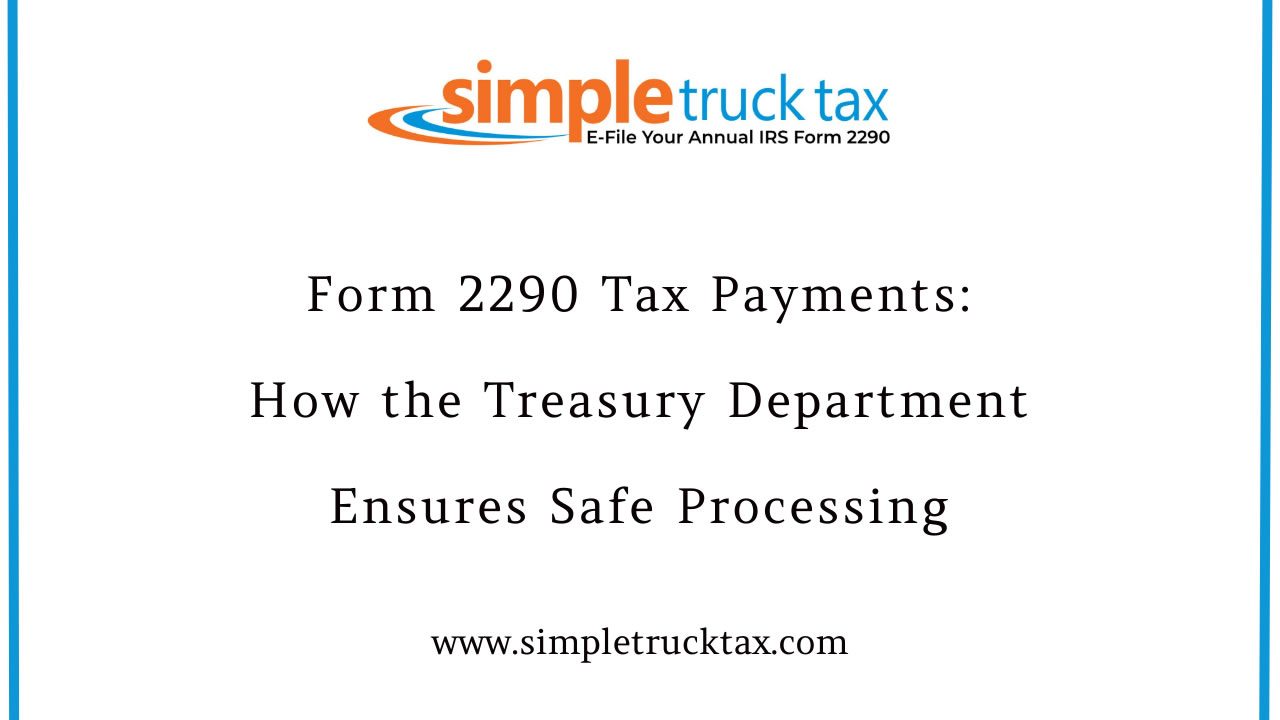
Form 2290 Tax Payments: How the Treasury Department Ensures Safe Processing
Heavy highway vehicle owners are aware that Form 2290 tax payments made on time are imperative. The Treasury Department ensures that these tax payments are processed safely and efficiently. This article discusses the systems and security measures that safeguard your Form 2290 tax payments from the very beginning until completion.
What Is Form 2290?
Form 2290, or the Heavy Highway Vehicle Use Tax Return, is submitted each year to the IRS by truck owners and operators that travel on public highways. The federal excise tax is levied on vehicles with a weight of 55,000 pounds or more and is used to fund the upkeep of the country's infrastructure.
Why Secure Processing Matters for Form 2290
With millions of dollars in payments made each year, security in tax processing is not only a choice—it's a requirement. Companies depend on secure payment channels to prevent fraud, identity theft, and delays in receiving their IRS-stamped Schedule 1, which is needed for vehicle registration.
The Role of the U.S. Treasury Department
The U.S. Department of the Treasury oversees all federal tax collection systems, including the payment processing of Form 2290. It collaborates with the IRS to ensure that all data, transactions, and user information are secured at each level of the payment process.
Key Security Measures by the Treasury
- Encryption Payment Gateways The Treasury requires 256-bit SSL encryption for all payment gateways in order to hinder unauthorized access to sensitive taxpayer information.
- Secure Electronic Federal Tax Payment System (EFTPS) For companies who choose to make direct payments, the EFTPS provides verification through multi-factor authentication and continuous 24/7 monitoring against suspicious activity.
- Trusted Third-Party Providers The IRS certifies e-file providers through strict tests, so only compliant, secure sites process Form 2290 filings.
- Data Integrity and Audit Trails Each Form 2290 payment contains an electronic audit trail. This enables the IRS and the Treasury to track every step of the process, providing accountability and eliminating errors.
How to Make a Secure Form 2290 Payment
Follow these steps to make your payment securely:
- Choose an IRS-authorized e-file provider They follow stringent IRS security guidelines and provide a hassle-free secure experience.
- Pay via EFTPS or Direct Debit Make use of these methods to have more control and visibility of your transaction.
- Double-check your EIN and VIN Mistakes in your Employer Identification Number (EIN) or Vehicle Identification Number (VIN) may cause delay and result in fines.
- Keep records of your stamped Schedule 1 This is proof of payment and used to renew truck registration.
How the Treasury Responds to Threats
Cyber threats are ever-present in today's age of technology. The Treasury's Cybersecurity and Infrastructure Security Agency (CISA) is regularly engaged in detecting and eliminating cyber threats. It also works together with other government agencies to send out real-time alerts and responses to any likely breach.
Trust in the System
The Form 2290 tax payment process is a shining example of federal regulation getting it right. Due to the Treasury Department's solid digital foundation, trucking experts can safely file and pay their excise taxes.
As a fleet manager or owner-operator, you can be confident that your Form 2290 payment is not only reaching the right destination—but doing so securely and safely.